There is something about water that makes everyone think, “Ah, yeah, I’d like to vacation near some water.” And many hotels are incidentally situated around water. And, in fact, some are directly on it.
Bored Panda recently covered a mini floating hotel in New South Wales, Australia, but another, more historical and much more grandiose in its scale, one has popped up recently.
Originally called the John Brewer Floating Hotel, it was built in Singapore and was planned to be located off the coast of Australia in the Great Barrier Reef as the world’s first floating hotel, or floatel, as it was referred to.
However, a string of misfortunes and financial issues have led it to Vietnam and subsequently to North Korea, where it was decided to put an end to the historical floating hotel. Here is the story.
This is the John Brewer Floating Hotel, the world’s first floating hotel with a bit of a rough history
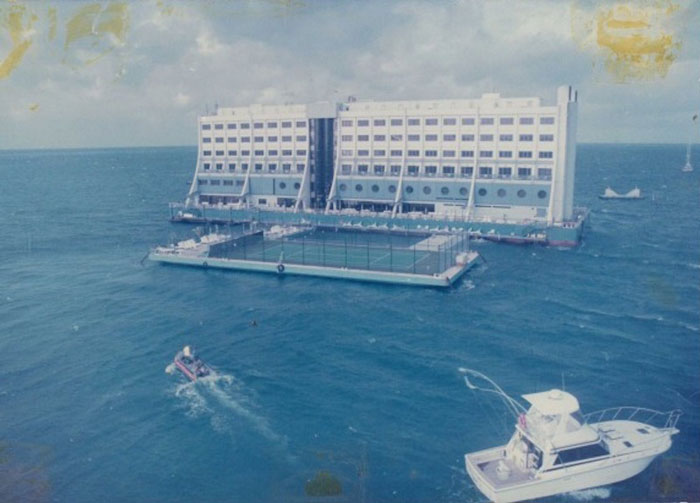
Image credits: Unknown
Doug Tarca, an Italian-born diver who migrated to Australia in 1935, was passionate about conserving the wonders of the Great Barrier Reef and sharing their beauty with the world. After getting a permit to harvest coral and several business ventures tied to the Great Barrier Reef, he became a key figure in the development of the aforementioned floating hotel.
And the result was nothing short of spectacular. Promising “paradise at sea”, the John Brewer Floating Hotel (under Four Seasons management) opened its doors in 1988 as a floating 5-floor high building that housed almost 200 rooms, a number of nightclubs, bars, and restaurants, as well as a helipad, a tennis court, and a 50-seat underwater observatory.
Wittily referred to as a floatel, the floating hotel first opened its doors back in 1988 in the John Brewer reef
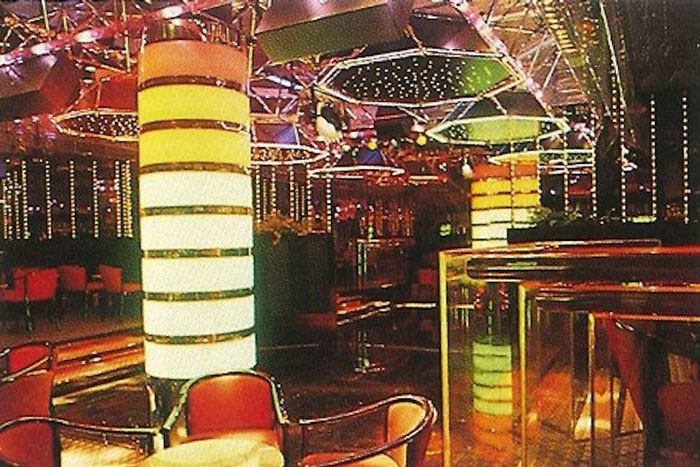
Image credits: Unknown
The 5-floor hotel had nearly 200 rooms, nightclubs, bars, restaurants, a tennis court, a helipad, and an underwater observatory to watch the coral reefs
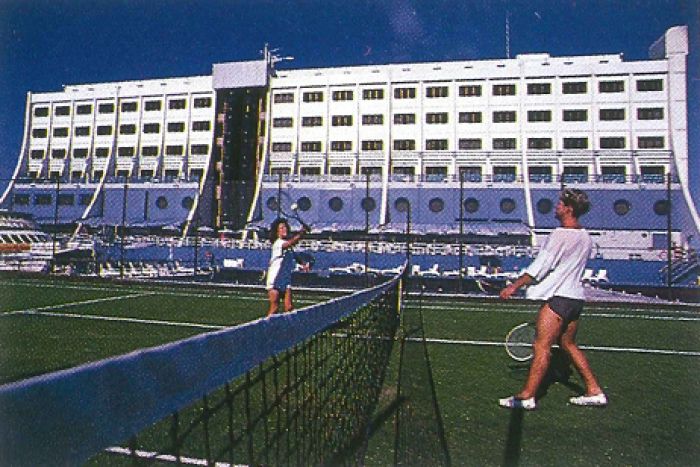
Image credits: Barrier Reef Holdings Catalog
The floatel measured at 89.2 meters in width and 27.6 meters in height from sea level. Fuel oil capacity was at 200 tons with a generating capacity of 2,300kW. Officially, the floating hotel had a 98-people staff and could accommodate up to 356 guests across 140 double rooms and 34 luxury suites.
In a bit of an ironic twist, despite Tarca’s initial vision to have the hotel serve as a place where people can marvel at the Great Barrier Reef, large amounts of coral had to be removed in the John Brewer reef where the hotel was situated. This caused great outrage among conservationists.
The floatel extended 89.2 meters in width and 27.6 meters in height, housing 356 guests across 140 double rooms and 34 luxury suites
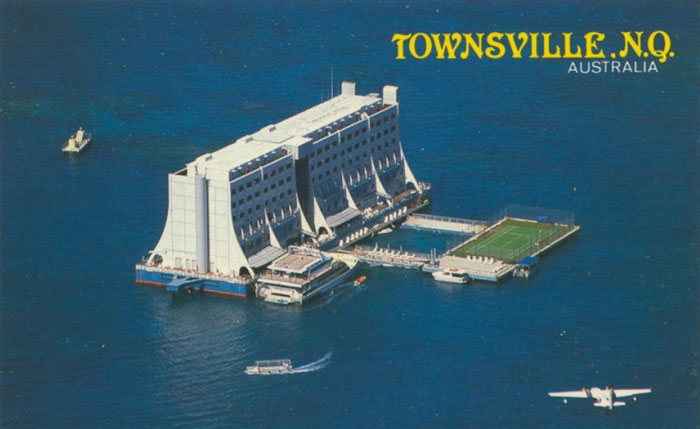
Image credits: Centre for the Government of Queensland
Unfortunately, the hotel was hit by a cyclone and ended up being commercial flop within a year
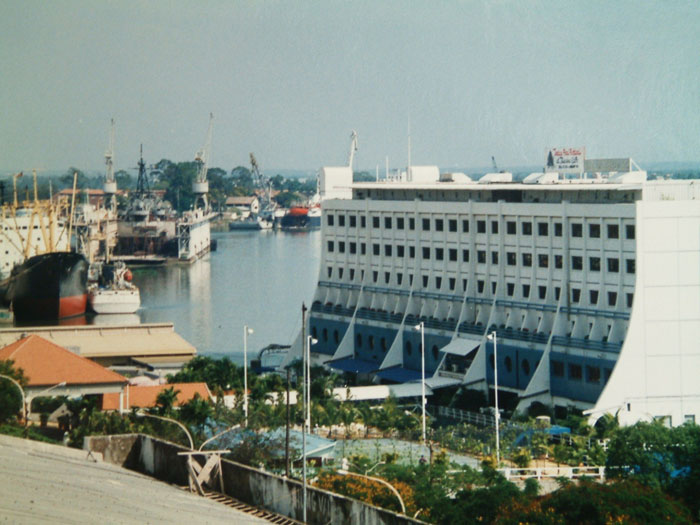
Image credits: Nguyen Ngoc Chinh
It was reported that the floatel suffered an almost 8 million dollar loss in its first year
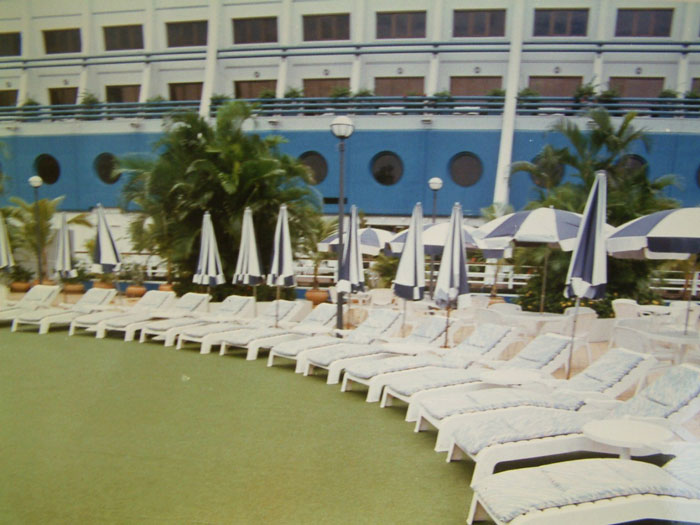
Image credits: Nguyen Ngoc Chinh
Unfortunately, the hotel had no luck for the year it was operating 40 miles off Townsville, Queensland, Australia. Soon after arriving from Singapore, the hotel was greatly damaged by Cyclone Charlie, which hit the town of Ayr, Queensland, reportedly causing a total of $2,300,000 dollars in damages.
What is more, the hotel turned out to be a huge financial loss for the company and it was put for sale on the market. According to a report done by Southern Cross University, it was reported that BRH, the company owning the floatel, incurred a $7.89 million loss for the 87–88 financial year considering all that happened. Soon after, it was determined that a gigantic World War 2 ammunition dump was found in John Brewer Reef lagoon around 5 kilometers away from the floatel.
It was eventually sold off to a Japanese company and relocated to Ho Chi Minh City, Vietnam
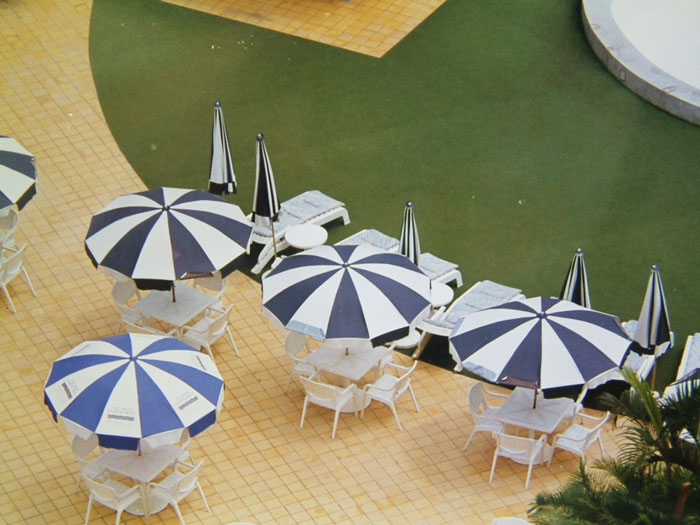
Image credits: Nguyen Ngoc Chinh
While there, it operated as the Saigon Floating Hotel, a favorite nightspot among many, for another 10 years
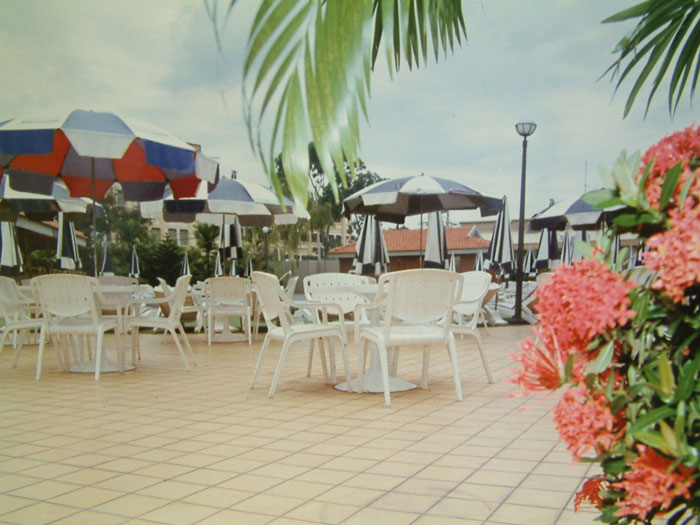
Image credits: Nguyen Ngoc Chinh
It too, unfortunately, ran into financial problems and was sold off to North Korea
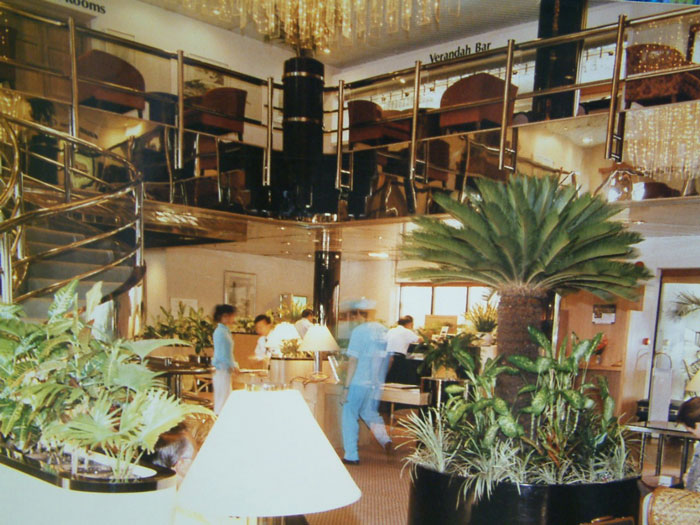
Image credits: Nguyen Ngoc Chinh
The floating hotel was soon sold and moved to Ho Chi Minh City, Vietnam, where it operated as the Saigon Floating Hotel, a favorite nightspot among many, for another ten years before being brought to North Korea—to the Mount Kumgang Tourist Region—and renamed Hotel Haegeumgang. The hotel was situated at the border between North and South Korea and served as a tourist attraction for South Korean tourists.
In 2008—ten years after its opening in North Korea—there was an incident where a South Korean tourist was shot in the hotel by a North Korean soldier, reportedly leading to its closure until 2018 when the leaders of North and South Korea decided to reopen it again.
In 1998, the now named Hotel Haegeumgang was established in the Mount Kumgang Tourist Region in North Korea
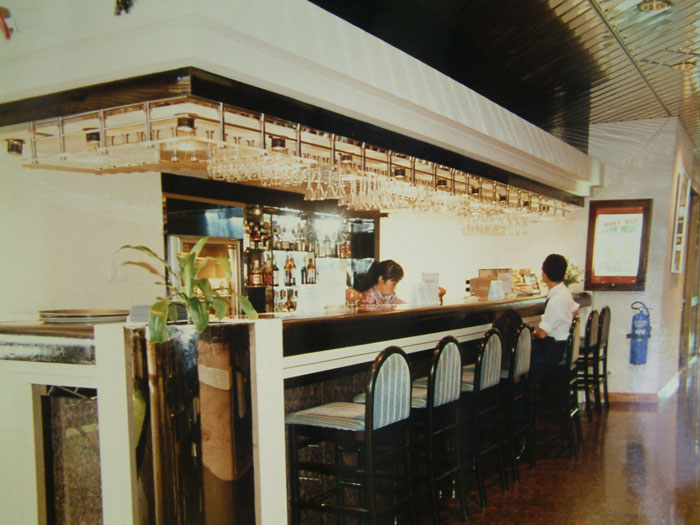
Image credits: Nguyen Ngoc Chinh
Though it did operate in North Korea for a number of years, a shooting incident occurred that reportedly lead to the closing of the hotel until 2018
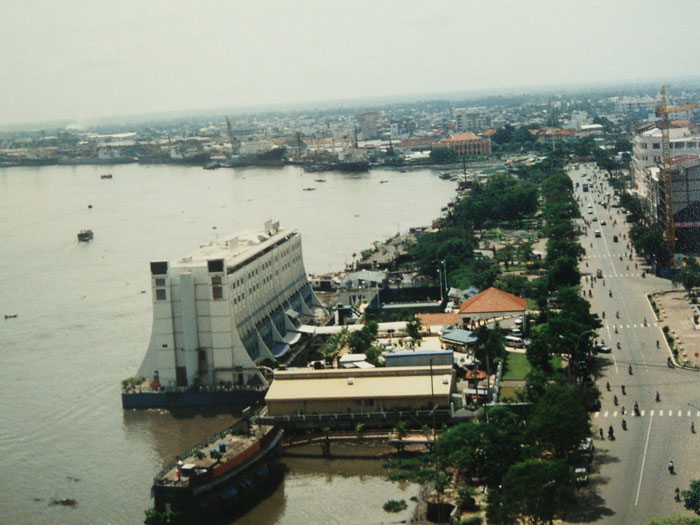
Image credits: Nguyen Ngoc Chinh
But, after many years of it rusting away, not even North Korea wanted the hotel at this point. After traveling roughly 14,000 kilometers from the Great Barrier Reef via Vietnam and ending up in North Korea in 1998, another 21 years have passed when Kim Jong-un himself visited the site and criticized its shabby look, saying that it doesn’t have any national character in its architecture at all.
This prompted plans for the floatel’s drastic redevelopment to meet North Korea’s aesthetic taste and sentiment. Many are saying that this marks the end of the world’s first floating hotel after 3 decades of multiple managements trying to keep it afloat.
Plans to demolish and redevelop the floatel are in the works, marking the end of the world’s first floating hotel
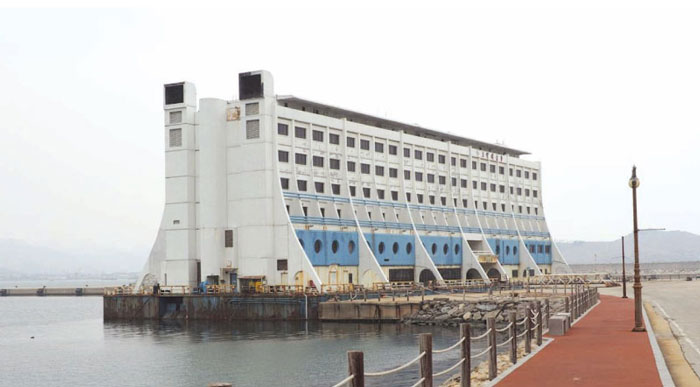
Image credits: Unknown
What are your thoughts on this? Let us know in the comments section below.
from Bored Panda https://bit.ly/2Cg3OKt
via Boredpanda
